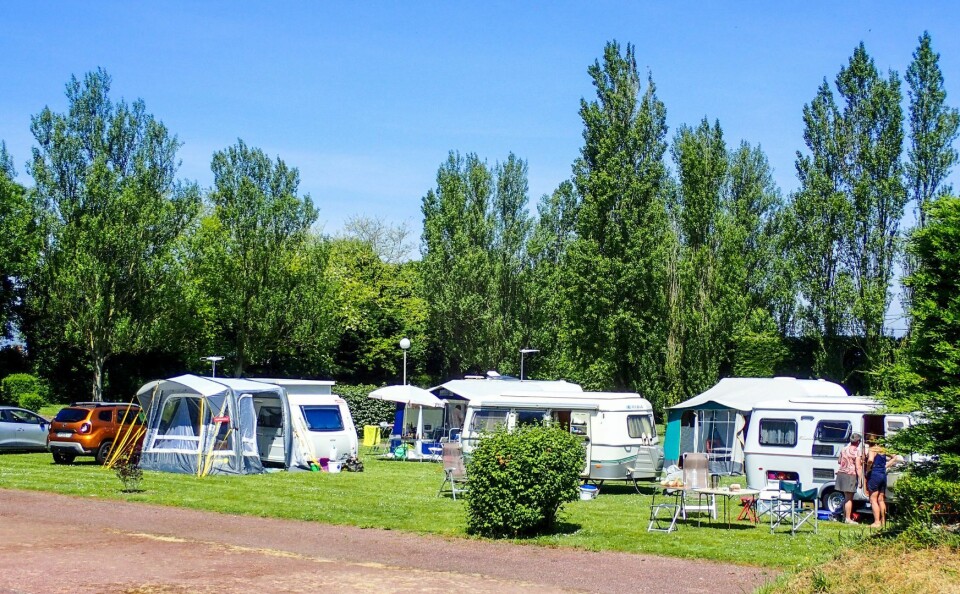-
Price rises for Netflix in France
The Standard (with ads) and Premium packages are increasing by €24 a year
-
Easter traditions across France: From rattles and hooded processions to giant omelettes
Regional Pâques celebrations highlight France’s cultural diversity
-
Camping holidays becoming more popular in France despite challenges
Foreign tourists are driving positive results as people in France tighten budgets
Cheaper holidays at French DIY campsites where everyone pitches in
Campsites run by the campers themselves are growing in popularity, and it is not just about the savings

As belts are tightened and plans are pushed back, it is still possible to have a cheap holiday in France, but you will have to roll up your sleeves.
The Groupement des Campeurs Universitaires (GCU) association has more than 90 campsites, all of which are run by the campers themselves.
They water the plants, clean the bathrooms and welcome new guests.
“We’re the opposite of large campsites, where you are more like a consumer,” said Didier Bonnaire, vice-president of the GCU.
Work four hours for every three weeks camping
An assembly is held every Monday, during which volunteers are assigned tasks for the week ahead.
Each member is asked to contribute around four hours of their time for every three weeks they spend camping.
If you split that time between two campsites, you will not have to do the work twice, and if you stay for just two or three nights, you will only be asked to give up one hour.
Set up for teachers in France
The GCU was created in 1937 in the spirit of the social advances of the Popular Front.
Originally reserved for teachers in France, in the 1990s it opened up to teachers from Europe and other French public sector workers.
Since 2015, anybody can join who “shares our values and accepts the participative model”, Mr Bonnaire said.
That change in policy has coincided with the current inflation crisis to create a surge in popularity.
The GCU now has 48,000 members, including 6,000 who signed up last year.
A return to nature and simplicity
“With the same budget, you can go on holiday for three weeks, compared to one week at a four-star campsite.”
Mr Bonnaire said the cost of living crisis has also changed people’s habits, with the Var in the south still popular but not at the same level as before.
“The cost of motorway tolls and petrol for people from the north means they are leaning more towards Brittany and Normandy, and climate change has had the same effect.
“Campsites in the mountains are now practically full in late July. There has been a return to nature and simplicity.”
Read more: These are the rules for wild camping in France
Talk to neighbours and share a drink
The attraction of camping participatif is not only financial.
Campers are also looking for a safe, convivial atmosphere.
“Doing a short shift on reception means you will come across people you have welcomed in,” Mr Bonnaire said.
“And practically once a week during high season, everybody will bring their chairs and food and we share a meal.”
This is particularly sought after by foreign visitors, says Nicolaas van der Toorn, from the Netherlands, who oversees the GCU’s presence in various European countries.
“I don’t think the European campers who spend their holidays in France are the least well-off.
“They are less interested in the attractive prices than the positive atmosphere, the calm, and the space,” he said.
“These members do not stay at the four or five-star campsites with huge pools and nightclubs.
“They prefer more convivial, active holidays, with bike rides or trips to museums and cultural attractions, to have interesting discussions with their neighbour, or simply to share a drink.
“The contact with French members is very rewarding for francophiles.”
Read more: France - a camping paradise with campsites for everyone this summer
One member of group must speak French
The GCU has a point of contact in seven other European countries, home to 650 members.
This includes many in Germany and Belgium, and 30 in the UK.
At least one member of the party must be able to communicate in French, in order to facilitate the organisation of chores.
Various cultural and sporting activities are on offer depending on the site, including tennis and pétanque competitions, and some also have a pool.
The campsites mostly comprise spots where you can pitch a tent or park your caravan, but you can also rent accommodation such as a mobile home. One site even has apartments.
No need to book
“We generally do not have more than 15% mobile homes,” Mr Bonnaire said. “Lots of campsites are now exclusively for mobile homes, and in some areas we are the last ones to offer classic camping pitches.”
Members can book for this summer until June 7. Only half of the spots can be reserved, meaning you can also turn up on the day.
There is no need to reserve for stays before July 10 or after August 15, Mr Bonnaire said.
Even during peak season, you can check online or phone the campsite on the day to see if they have space.
Membership costs €28 per year for adults, €5 for under-18s, and €10 up to the age of 26. Prices depend on the region and accommodation.
A two-bedroom mobile home costs no more than €700 per week in peak season, Mr Bonnaire says. “Neighbouring sites on the Atlantic coast charge between €1,000 and €1,200.”
Go to the GCU website to learn more.
Related articles
New 3,000km hiking trail takes trekkers across ‘hidden’ France
‘Volunteering at French jazz festival was exhausting and exhilarating’
Truck or home? Clampdown on converted vans in French tourist spots
























